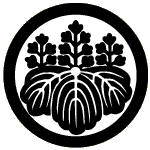
Diamond Sutra
The Vajracchedika Prajnaparamita Sutra
History ... Bibliography ... Links ... Text ... Comments
The Diamond Sutra
The Vajracchedika Prajnaparamita Sutra
Introduction, History
The Diamond Sutra
The Vajracchedika Prajnaparamita Sutra
Bibliography, Links, Resources
The Diamond Cutter. Paraphrased by Josh Pritikin. 24Kb. Index
The
Diamond Perfection of Wisdom Sutra. 34Kb.
Diamond
Sutra A Chinese version of the Diamond Sutra is the
world’s earliest complete
survival of a dated block printed book, made in 868
CE. This rare document is now in
the British Museum collection of early
printed books.
The Diamond Sutra - A Chinese Block Printed Book (868 CE)
The
Diamond Sutra. Translated by Charles Muller. 96Kb.
Includes Chinese text.
The Diamond
Sutra. Translated by Charles Patton. 109Kb. HTML
and PDF
Version.
The
Diamond Sutra. Translated by Edward Conze. 29Kb.
Diamond Sutra. Translated by F. A. Price.
The Diamond Sutra and the Sutra of Hui-Neng. Translated by A. F. Price
and
Wong Mou-lam. Forewords by W. Y. Evans-Wentz and Christmas Humphreys.
Boston, Shambhala, 1990. Notes, 168 pages. ISBN:
0877730059.
Google
Search on "Diamond Sutra"
The Vagrakkhedika or
Diamond-Cutter Sutra. 64Kb
Vajracchedika
Prajnaparamita Sutra 47Kb
Zen and the Art of Insight. Selected and Translated by
Thomas Cleary.
Boston, Shambhala, 1999. Notes, sources, 159 pages. ISBN: 1570625166.
The Diamond Sutra
The Vajracchedika Prajnaparamita Sutra
Text and Comments
If one sees me in forms,
If one seeks me in sounds,
He practices a misleading way.
He cannot see the essence of creeds:
All conditioned creeds
are like dreams, illusions, bubbles, shadows,
like dew drops and a lightning flash:
contemplate them thus.
Doctrines and creeds are like a raft
to carry one to the other shore,
and then to give away.
Neither cling to the raft forever,
or reject it when drowning.
Even better,
become a strong swimmer.
Source: The
Diamond
Sutra
Paraphrased and modified by Mike Garofalo
You should know that such people
will have planted good roots
With not just one Buddha, two Buddhas, three, four or five Buddhas,
But will have planted good roots with measureless millions of Buddhas.
All who hear such phrases and produce even one thought
Of pure faith are completely known and completely seen by the Tathagata.
Such living beings thus obtain measureless blessings and virtue.
And why?
Those living beings have no further mark of self, of others, of living beings,
Or of a life;
No mark of dharmas and no mark of no dharmas.
If your hearts grasp at marks, then that is attachment to self,
to others, to
living beings, and to a life.
For that reason you should not grasp at dharmas,
nor should you grasp at no
dharmas.
All you Bhiksus should know that the dharma which I speak is like a raft.
Even dharmas should be relinquished, how much the more so no dharmas.
- The Buddha, The
Diamond Sutra
"As I understand what the Buddha has said, there
is no concrete dharma called
Anuttarasamyaksambodhi, and there is no concrete
dharma which the Tathagata
has spoken. And why? The dharmas spoken by the
Tathagata cannot be grasped
and cannot be spoken. They are neither dharmas nor
no dharmas. And why?
Unconditioned dharmas distinguish worthy sages."
- Diamond
Sutra
'Tathagata' means thusness of all dharmas.

Prepared by Michael P. Garofalo
The Diamond Sutra
Available on the Net since December 1, 2005.
Cloud Hands: T'ai Chi Ch'uan and Qi Gong